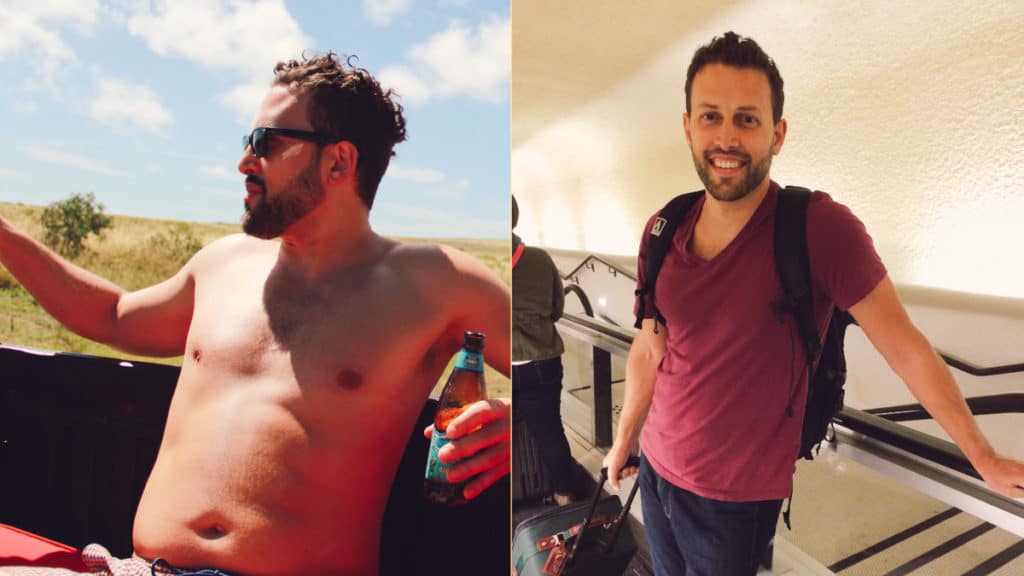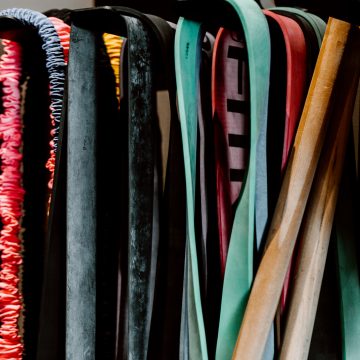The Gist:
- Weight gain is the loss of good habits
- You cannot fix a problem of creation through omission
- Create quantifiable choices in your day that replace poor habits with good ones.
- Keep the changes simple and high payout
Recently I have noticed a rather alarming collection of mass around my waist. Some would call it a spare tire or love handles. Some would say that I have just gotten fat. Some would say that I look just fine. In the grand scale of things, I have always been able to look at my current body as a point of transformation.

I have run the gamut of appearances, from 220 lbs and a soft sort of mass, to 190 lbs of hard muscle, to a scrappy 185 lbs at 8% body fat, to 210 lbs of mostly mush and late-night chocolate binges. The ability to hold my current condition softly in my mind allows me to think critically and put plans in motion without the burden of emotional weight that people usually associate with an image of their body they do not want to have. As I showered today looking down at this new ring of flesh around my waist I had a key pattern of thoughts:
- Wow, that is bigger than I thought
- I really need to lose some weight
- Well, it’s not so much that I gained weight, but I gained bad habits
- I need to create better habits
- I need to write a blog about this!!
- Wait, I didn’t gain bad habits, I lost good ones
When you are looking at a problem, I believe it is key to pause and have a clear idea about what the problem really is. Most emotional conflicts with yourself or other people stem from some deeper more basic concept. So the conversation to your spouse about “Why didn’t you clean up the kitchen” is probably not really about the kitchen but maybe about your financial concerns. It just came out, poorly and sloppily, as anger over a messy kitchen.
I believe applying this thought process to weight, and any other life problem is key. The weight you have or have gained is not a symptom of excessive caloric intake. It is the slow loss of good habits. As you can see above, my original thought is that I gained bad habits, but this ignores another fundamental flaw in thinking that is crucial to change. We are genetically and naturally born with good habits. Children like to move and explore. Children go to bed when its dark and wake up with the sun. Children stretch because it feels good. We are all born with a system to keep us strong, supple, thin, and healthy. Over time, in tiny little ways, we replace those inherent good habits with bad ones. It is sitting down more than you should or eating just a little too much or being less consistent with your workout. After all, we do not gain weight overnight, it is the accumulation of many small decisions that lead us to the sudden realization that our body has changed for the poorer.
When you realize the problem is the loss of good habits, then the solution that most people take with weight loss, eat fewer calories, makes absolutely no sense. Eating fewer calories does not create good habits. They are not even in the same category. One is creation (good habits) and the other is omission (eat less). No wonder so many people try to change their body only to fail, often repeatedly. The solution does not match the problem.
So what do you do with this new information? Audit your habits. Critically look at your current habits and identify the ONE habit that can be replaced with a good habit that will have the biggest impact. Simplicity is key. A quantifiable action is also key. The conversation can not be “I sit too much, so I will decide to stand more.” There are no numbers associated with that and you are trying to change a behavior that is present all day. Here is what it looks like for me, right now: “I often eat a dessert after dinner. I will now walk the dogs for 2 blocks immediately after dinner.” A few key notes, I am not saying what I will not do. Omission is not the point, creation is the goal. I am creating an activity that will have a high payout. It will create movement after eating leading to higher glycogen storage in muscle fibers via GLUT-4 activation so more calories go to muscle and less to fat. It will make my dogs happier on a daily basis. It will give my body the chance to evaluate whether or not I really want dessert. It will allow me the chance to have dessert if, after the walk, I really want it. It will invest energy in an often missed movement pattern, the simple act of walking. It requires a minimal time commitment and only occurs once daily.
Change your habits and your weight will follow.
Stay Strong,
Q



